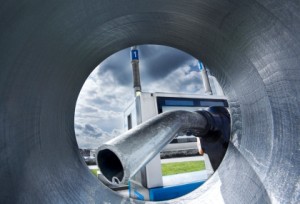
Millions of pounds in revenue are lost each year in the UK and Ireland through ‘fuel laundering’. This is the removal of the chemical markers added to low duty diesel – legitimately used by agricultural and construction vehicles – so that the fuel can be re-sold as road fuel.
In a move to stop it, HMRC has signed a Memorandum of Understanding with the equivalent authority in the Republic of Ireland to find a new fuel marker that cannot be as readily removed from the fuel. Tenders have been invited to find and manufacture the new marker.
-
A litre of low duty diesel costs about 68p so there’s a powerful incentive for fuel fraud
Andy Wiggins, Oils Policy team leader at HMRC said, “Although the UK’s current fuel marker is actually one of the better quality markers in use, we are not complacent and appreciate the need to keep one step ahead of fuel launderers.
“Consequently the search for an even more robust marker capable of foiling 21st century fuel launderers is essential to ensure that opportunities for fraudsters attempting to exploit fuel supplies are reduced and illicit fuel can be detected.”
Why do people launder diesel?
A litre of low duty diesel – ‘red’ diesel – costs about 68p. Since the only difference between this and the stuff you buy on the forecourt is the marker dye, there is a powerful incentive to use it in road going vehicles. The practice is illegal of course, and 4WDs in rural areas are accustomed to being ‘dipped’ to see if they’ve been on the fiddle. Early morning raids on livestock markets are not unknown. Penalties can include confiscation of the vehicle.
The marker is tenacious and even a few litres will be detected long after they’ve been consumed. It also leaves a more of less permanent mark on engine parts
So a more sophisticated breed of fuel fiddlers has evolved. They remove the marker from the fuel so that it can be re-sold as road fuel without fear of detection. Or without so much fear anyway.
This practice is clearly on a far more organized scale, and the revenue is determined to clamp down on it. Hence the international tender to find a new marker.
Our business car advice is to be at least aware of the practice, particularly if your business puts drivers in the way of temptation. Small fleets could easily be caught out.







